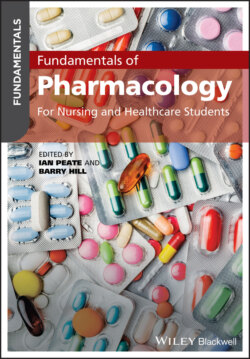Читать книгу Fundamentals of Pharmacology - Группа авторов - Страница 88
Clinical considerations: Consent to treatment (adults)
ОглавлениеAdults with capacity: The authority to treat comes solely from the patient. According to UK law, consent by proxy is not permitted for the care or treatment of adults who have the capacity to make an informed decision.
Adults lacking capacity: Where a patient does not have the mental capacity to make an informed decision regarding their care due to an impairment or disturbance to the functioning of the mind – e.g. acute confusional state, dementia, brain injury, being unconscious – then under the Mental Capacity Act (MCA, 2005) the health professional can decide upon the treatment that is deemed in the best interests of the patient without the consent of the next of kin.
Section 3(1) of the MCA (2005) sets out the following benchmarks by which to assess an adult's capacity:
1 If they are unable to understand the information given to them relating to the decision.
2 They are unable to retain the information.
3 They are unable to weigh the information as part of the decision‐making process.
4 They are unable to communicate their decision.
When ethical dilemmas in practice are met, consideration needs to be given to which principles are in conflict to then consider which is more important. In helping to resolve ethical dilemmas, ethical theories are called upon. Several exist, including:
utilitarian/consequentialism
deontological ethics
virtue ethics
nursing ethics.
Utilitarian or consequentialism theory considers the rightness of an act as that which, when considering the costs and benefits, creates the greatest good for the greatest number. For example, the issue of immunisation is currently a controversial one with a minority of parents deciding to opt out of immunisation programs for their children. This puts children and other vulnerable members of society at risk of developing some diseases that were previously eradicated in the UK, e.g. measles (Public Health England, 2019), with the associated implications to the individuals, wider society and to the health service. The utilitarian perspective would be that all eligible children should be immunised irrespective of the views/wishes of their parents. Utilitarianism would not be concerned with the autonomy of the individual (the right to not give consent to the vaccine) as this is arguably in conflict with the greater good.
